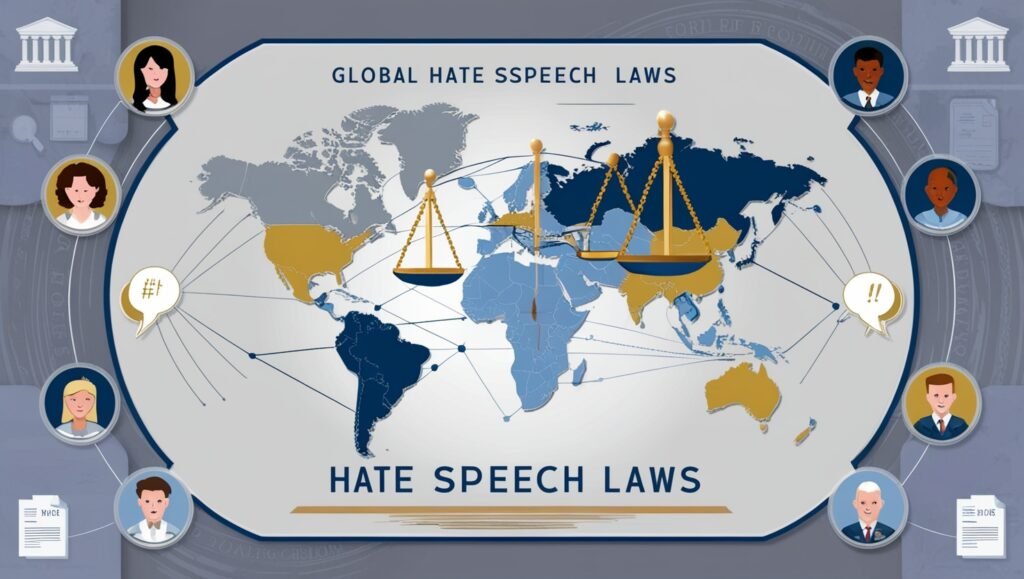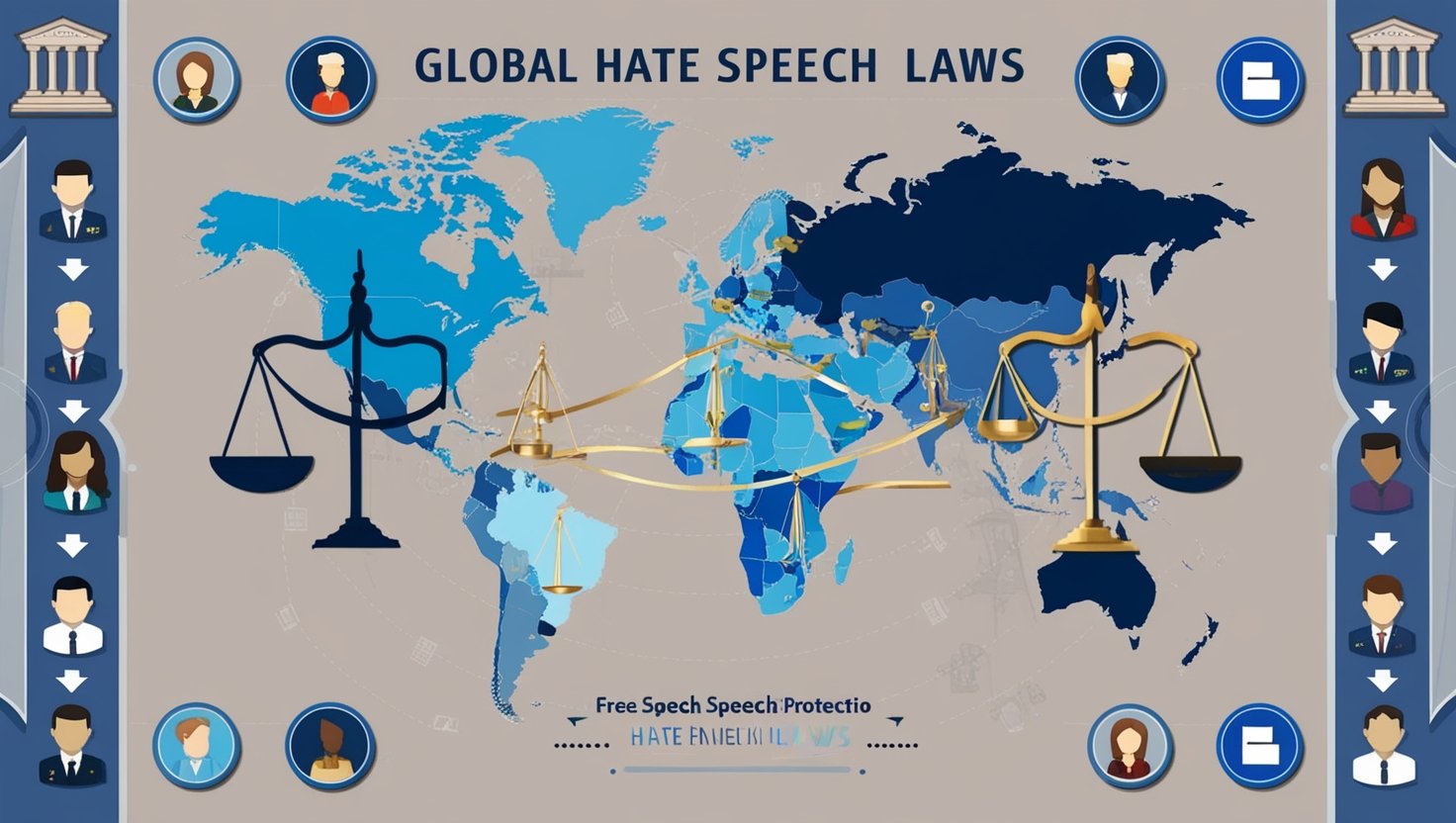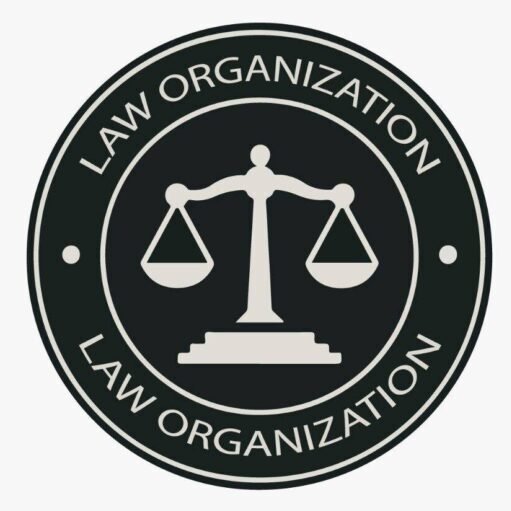Hate speech and Hate Speech Laws is one of the top most debated yet often misunderstood global issues. In this blog, we’ll explore what hate speech is, its legal implications, and how it gets regulated.
Hate speech is a contentious issue that sparks debates worldwide, balancing the right to freedom of expression with the need to protect individuals and communities from harm.
This blog will explore in detail what constitutes hate speech and hate speech laws, the global legal landscape, Laws by Country and the challenges in enforcing such laws.
Without any further delay , let’s get started. Keep Reading ….
What is Hate Speech? Definitions and Legal Perspectives
Hate speech lacks a universally accepted definition and varies across legal and cultural contexts. The Cambridge Dictionary defines it as public speech that incites hate or violence against individuals or groups based on attributes like race, religion, sex, or sexual orientation. Similarly, the Encyclopedia of the American Constitution describes it as expressions of hostility or disparagement based on group characteristics.
Legal definitions differ by country, with some nations criminalizing hate speech while others, like the United States, protect it under freedom of speech laws. In some jurisdictions, victims can seek legal remedies through civil or criminal proceedings. Hate speech is also recognized as a precursor to mass atrocities, including genocide, and incitement to genocide has been prosecuted in international courts, such as the International Criminal Tribunal for Rwanda.
Hate Speech vs. Free Speech
A key challenge in regulating hate speech is distinguishing and differentiating it from free speech. While freedom of expression is a fundamental right in democratic societies, most legal systems agree that it is not absolute. The debate centers on:
- Where to draw the line? Restricting hate speech can protect marginalized communities, but overly broad laws risk suppressing legitimate political discourse.
- Legal differences: Some countries criminalize hate speech outright, while others, like the United States, protect most forms of expression under free speech laws.
Hate Speech Laws
Following World War II, Germany criminalized Volksverhetzung (incitement of popular hatred) to prevent the resurgence of Nazism, and many European countries followed with similar hate speech laws. The European Union’s Framework Decision 2008/913/JHA mandates member states to criminalize hate crimes and hate speech, though implementation varies.
At the international level, the United Nations Human Rights Committee upholds freedom of expression, as outlined in Article 19 of the Universal Declaration of Human Rights (UDHR). However, additional legal frameworks, such as the International Covenant on Civil and Political Rights (ICCPR) and the International Convention on the Elimination of All Forms of Racial Discrimination (ICERD), impose limitations to prevent harm, protect public order, and address hate speech.
Countries such as Australia, Canada, Denmark, France, Germany, India, Ireland, South Africa, Sweden, New Zealand, and the United Kingdom enforce hate speech laws. In contrast, the United States does not have hate speech laws, as the First Amendment protects free speech, and the Supreme Court has consistently ruled against such restrictions.
Hate speech laws generally fall into two categories:
- Public Order Protections – Require a higher threshold to be violated and are less frequently enforced.
- Human Dignity Protections – Have a lower threshold, making enforcement more common in countries like Canada, Denmark, France, Germany, and the Netherlands.
The enforcement of hate speech laws varies significantly across nations, reflecting differences in balancing free speech and societal protections.
Hate Speech Laws Around the World

Laws governing hate speech vary significantly across different countries. While some nations criminalize it to prevent discrimination and violence, some others protect it under freedom of speech laws. The legal scope of hate speech depends on the country’s approach to balancing free expression with societal protections.
Strict Regulation Countries:
- Germany: Enforces Volksverhetzung (incitement of popular hatred) laws, including penalties for Holocaust denial. The 2017 NetzDG law requires social media platforms to remove hate speech within 24 hours.
- France: The Gayssot Act criminalizes Holocaust denial, and recent laws penalize hate speech on social media.
- Canada: Under the Criminal Code (Section 319), advocating genocide or inciting hatred against identifiable groups is illegal.
- European Union: The Framework Decision 2008/913/JHA mandates criminalization of hate crimes, though enforcement varies among member states.
Moderate Regulation Countries:
- India: Sections 153A, 295A, and 505 of the Indian Penal Code (IPC) criminalize speech that promotes enmity between groups.
- Brazil: The 1988 Constitution defines racism as an “offense with no statute of limitations,” and in 2019, homophobia and transphobia were included under hate crime laws.
- South Africa: The Promotion of Equality and Prevention of Unfair Discrimination Act criminalizes hate speech based on race, religion, and other attributes.
Free Speech-Oriented Countries:
- United States: The First Amendment protects most forms of speech, including hate speech, unless it incites imminent violence (as per Brandenburg v. Ohio, 1969).
- Estonia: Has no specific hate speech laws, emphasizing strong free speech protections unless direct incitement to violence occurs.
For detailed information on Hate Speech Laws in different countries you can read this blog.
Global Approaches to Hate Speech Laws
Hate speech laws differ significantly across the world, reflecting various legal, cultural, and political approaches to balancing free speech and societal protection.
Strict Enforcement Nations:
- Germany criminalizes hate speech under Volksverhetzung (incitement to hatred), including laws against Holocaust denial and Nazi propaganda.
- France enforces strict hate speech laws, including the Gayssot Act, which bans Holocaust denial.
- Canada considers advocating genocide and public incitement of hatred against identifiable groups a criminal offense.
- European Union members follow Framework Decision 2008/913/JHA, mandating criminalization of hate speech, though implementation varies by country.
Moderate Regulation Countries:
- Australia enforces hate speech laws that vary by jurisdiction, offering legal redress for victims based on race, ethnicity, gender, and other protected characteristics.
- Brazil criminalizes racism as an offense with no statute of limitations, and in 2019, the Supreme Court extended this protection to homophobia and transphobia.
- India restricts free speech under Article 19(2), allowing “reasonable restrictions” on speech that threatens public order or national security.
- South Africa enforces hate speech laws under the Promotion of Equality and Prevention of Unfair Discrimination Act.
Free Speech-Oriented Nations:
- United States does not have federal hate speech laws due to First Amendment protections, though incitement to violence is not protected.
- Estonia offers broad free speech protections with limited restrictions on direct incitement.
The enforcement of hate speech laws remains a global debate, as some argue they protect vulnerable groups while others believe they suppress free expression.
Challenges in Enforcing Hate Speech Laws
Despite legal frameworks, enforcing hate speech laws remains a complex issue due to:
- Subjectivity: What qualifies as hate speech varies across cultures and legal systems.
- Online Platforms: The digital age amplifies hate speech, making regulation difficult.
- Censorship Concerns: Some argue that hate speech laws may suppress valid criticism or political discourse.
- Selective Enforcement: Some governments use hate speech laws to silence dissent rather than protect marginalized groups.
Hate Speech and Social Media
With the rise of digital communication, social media platforms face mounting pressure to regulate hate speech. Companies like Facebook, Twitter, and YouTube have policies against hate speech, but enforcement remains inconsistent. Governments worldwide are demanding stricter actions, leading to laws like Germany’s NetzDG, which mandates swift content removal.
Impact of Hate Speech
Unchecked hate speech can lead to severe societal consequences, including:
- Social Divisions: Increasing hostility between different communities.
- Psychological Harm: Victims of hate speech suffer mental distress, fear, and trauma.
- Political Instability: Hate speech has historically played a role in fueling conflicts, including genocide (e.g., Rwanda 1994, Myanmar Rohingya crisis).
Conclusion
Regulating hate speech is a global effort to balance free speech with social responsibility, but achieving this balance remains one of the biggest legal and ethical challenges of our time. While some nations impose strict regulations, others prioritize broad free speech protections. As technology continues to evolve, so too will the legal and ethical discussions surrounding hate speech. Striking the right balance remains one of the most complex legal challenges of our time.
Addressing hate speech effectively requires collaboration between governments, legal institutions, tech companies, and civil society to uphold both free expression and protection from harm.
For More Such Amazing and Informative blogs and articles you can visit our website and check out our blog section.

![Read more about the article Detailed List Of Pornography Laws By Country [2025 Updated]](https://pornography-laws.com/wp-content/uploads/2024/12/Leonardo_Phoenix_09_a_detailed_illustration_of_a_large_ornate_3-300x170.jpg)


